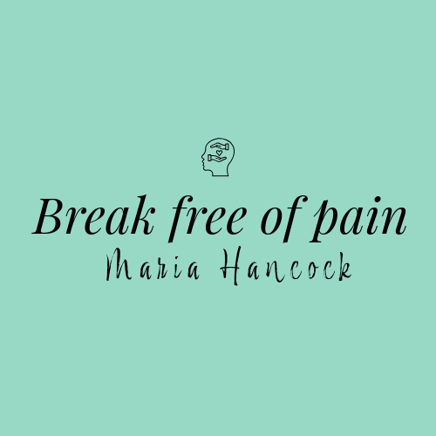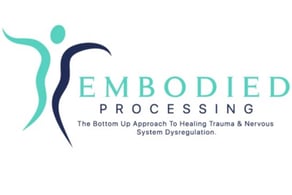Rethink Pain
We all experience pain during our life, it's inevitable. When we experience pain we usually presume something is wrong with our body and that this is causing the pain. However, what would you think if I said that's not always the case?
Pain is your brain's opinion
Pain is our brain's OPINION of how much danger we are in. The brain receives information via nerves from all over the body and it scans the environment and your mental state and memories to decide if it should create pain and if so, how much. So if you break your leg but somehow find yourself in a field with a tiger, your clever brain will probably decide that you don’t need to know about the pain in your leg right now because you need to make a rather swift retreat. It will decide to switch your pain off because it sees a bigger danger - one that you need to run from.
Your brain can also turn ON pain when there is no physical damage. This is a true story: a builder trod on a long nail on a building site and was in excruciating pain. However upon cutting his boot off at hospital they found that miraculously the nail had gone between his toes and NOT through his foot at all. Once his brain registered it’s false alarm, it switched off the pain. The brain had initially jumped to a conclusion that there was a nail in his foot, and decided to create pain so that he would stop and seek help.
We presume that pain is caused by tissue damage and that the nerves around the tissue send pain signals to the brain to turn on the pain. But it's not as simple as this.
All pain is real
All pain is real: the experience of pain is the same whether or not there is physical damage or not. People with MBS are not "making it up" and it is absolutely not "all in their head". So with MBS, the pain is real, yet, it is not due to physical damage in the body. Pain is created by the brain unconsciously and is there because your brain senses danger. You cannot consciously decide to switch it off, even when you know it isn't caused by physical damage.
In fact the pain you feel when you have MBS can often be even WORSE than pain caused by physical damage and often pain medication is ineffective. My RSI could be extremely painful and no medication worked. The knowledge that nothing would alleviate my pain drove the fear of pain up and (now I realise) increased my pain. Further, when I had knee pain, I was more restricted with my walking than a friend in their 70's with osteo arthritis in their hip!
It is common and normal for our joints to show wear and tear
So, now we know that pain is subjective, we also need to understand that it is common and normal to have physical abnormalities in our bodies – spinal stenosis, slipped or bulging discs, wear and tear in our joints. One study found that about half of people start showing some signs of disc degeneration on an MRI by their early 20s. Another study found that about 75% of people under age 50 have disc degeneration while more than 90% of people over age 50 have it. I myself have severe stenosis (a narrowing of the space inside the backbone) and my knees show wear and tear, yet I have no symptoms. As we age, we develop grey hair and wrinkles on our skin, and also wear and tear in our joints. Just like wrinkles, this doesn't cause pain.
Tissue damage does NOT correlate with pain
Research has surmised that one person could be in pain and show very little on their MRI scans yet another could show degeneration of a joint and be in no pain. Hence doing these diagnostic tests and explaining the pain as due to these abnormalities is incorrect and unscientific. Studies have shown that if you compare two sets of x-rays, divide people into one group that experience chronic pain and another without pain; there is no way of knowing which group is which, because pain does NOT correlate with bone abnormalities or degeneration.
We are finding that when pain becomes chronic (ie it has continued past 3 months) it is caused by the brain and actually not physical abnormalities. Sometimes there has been an injury which has healed but the pain continues. This can be for various reasons, and is in part usually due to the brain still perceiving danger and having learnt to create the pain and hence the brain needs to rewire itself to unlearn and switch the pain off again.
You are not to blame for your pain
When there is no physical cause for your pain, there is no need to feel shame or blame. Sometime people can think if they have a psychosomatic disorder that it is their fault, but this is absolutely not true. You are not to blame, you are not consciously making it happen, it is totally out of your control and you are absolutely not crazy. It is better described as your protective brain being over zealous at trying to protect you. Your brain's job is to protect you from harm and it does a great job, which is why there is such a huge amount of anxiety and depression - these are also symptoms of a brain perceiving danger.
Quite often those with MBS have experienced Adverse Childhood Experiences (ACEs) and the brain has become sensitised early on to look for danger, and also tends to overreact to percieved threats. Chronic pain is often triggered later in life around or after stressful events. I found that when I looked at my own ACEs and stressful events in adulthood, my chronic pain made so much sense. My chronic knee pain came exactly one year after the breakdown of my relationship with my dad, and my RSI pain started not long after a succession of various changes in my life such as moving home, job and a new relationship. Look at how Covid led to a spike in anxiety and chronic illness! You are not in control of how your brain reacts to your environment, so quit beating yourself up over it.
View a few YouTube videos here which explains it well -






Pain, the brain and your amazing protectometer - Lorimer Moseley
Explaining chronic pain: The role that stress plays and the creation of learned nerve pathways - Dr. Howard Schubiner






